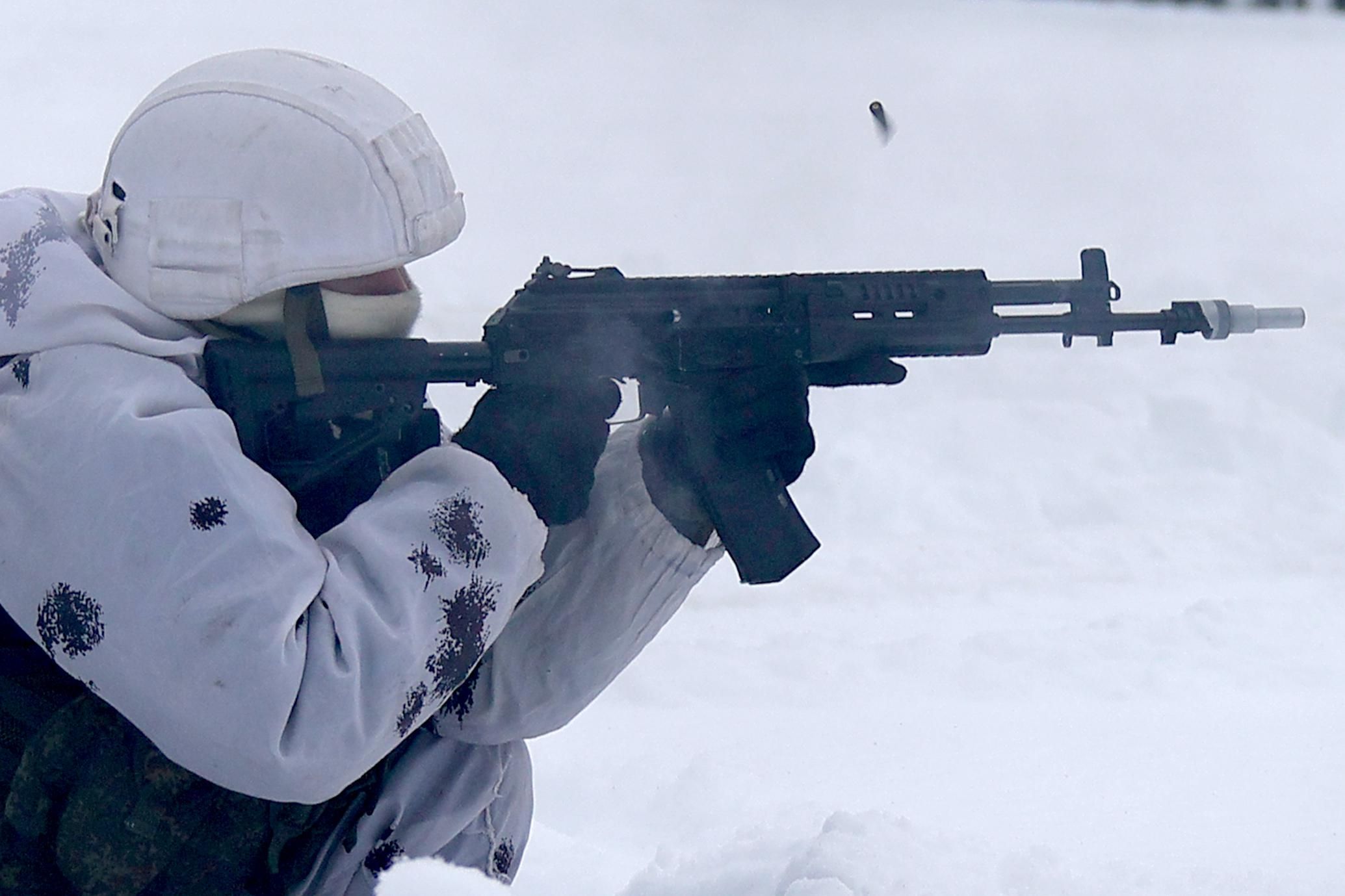An invasion of Ukraine could wipe out half of Russia’s invading forces and could even topple Vladimir Putin.
That’s what would happen if Russia invades Ukraine, according to Sergiy Kyslytsya, Ukraine’s ambassador to the UN.
In an interview with GZERO, Ukraine’s former deputy minister of foreign affairs called the Russian military buildup an “unnatural, unjustifiable concentration of troops.” Kyiv estimates there are between 120,000 and 130,000 Russian troops deployed along its border, but Kyslytsya said Moscow will need more than that to invade.
“It’s not [a] sustainable occupation, because the casualties will be so high that you can easily lose half of your personnel in a week,” said Kyslytsya.
Over the weekend, the US released its own assessment, estimating that Putin is 70% ready to invade, but that up to 85,000 — 50,000 civilians, 25,000 Ukrainian soldiers, and 10,000 Russian military personnel — could be killed in case of war.
An invasion could politically backfire at the Kremlin, too. The ambassador said that while Putin is betting on stoking Russian nationalism, an invasion could put his leadership at risk.
“I think it is going to be suicidal for Putin himself, and until he understands that, the calamity and the scale of life losses … can easily topple him.”
With regard to Chinese President Xi Jinping’s meeting with Putin ahead of the Olympics opening ceremony on Friday, the Ukrainian diplomat was quick to recall some Sino-Russian Olympic trivia.
“They remember what the Russians did” in 2008, he said, referring to when Russia invaded Georgia on the day the Beijing Summer Olympics got underway. Any similar moves this year, he says, “would really piss off the Chinese.”
Eurasia Group’s Ian Bremmer thinks a full invasion is “very unlikely” but believes any Russian action is likely to await the close of the Winter Games.
Ukraine is betting on China watching out for itself. Kyslytsya pointed out that China has a larger shared border with Russia than Europe. “It is not in the Chinese interest to have a war where a country next to the border is waging the war,” even if both Moscow and Beijing voted together against proceeding in last week’s fiery UN Security Council meeting.- Russia-Ukraine crisis: Major escalation this week - GZERO Media ›
- Petraeus: Taking Ukraine is one thing, holding onto it is another - GZERO Media ›
- War in Ukraine - GZERO Media ›
- Why is Russia on the UN Security Council? - GZERO Media ›
- Why is Russia on the UN Security Council? - GZERO Media ›
- Why is Russia on the UN Security Council? - GZERO Media ›
More For You
100 million: The number of people expected to watch the Super Bowl halftime performance with Bad Bunny, the Puerto Rican superstar and newly minted Album of the Year winner at the Grammys.
Most Popular
Think you know what's going on around the world? Here's your chance to prove it.
An imminent US airstrike on iran is not only possible, it's probable.
Americans are moving less — and renting more. Cooling migration and rising vacancy rates, especially across the Sunbelt, have flattened rent growth and given renters new leverage. For many lower-income households, that relief is beginning to show up in discretionary spending. Explore what's changing in US housing by subscribing to Bank of America Institute.
